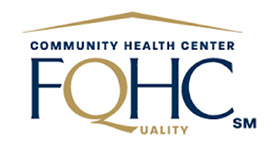AHL in the News, homepage, News, Access Health Louisiana Primary Care at Pythian, Belle Chasse C.H.C, Kenner C.H.C., South Broad C.H.C, St. Bernard C.H.C., St. Charles – Norco C.H.C, St. Tammany – Slidell C.H.C, St. Charles Community Health Center – Luling, Tangipahoa C.H.C, Washington C.H.C, Woodworth C.H.C.
Hurricane Season 2025
The National Oceanic and Atmospheric Administration (NOAA) is predicting an above-normal hurricane season for the Atlantic Region in 2025. Hurricane season runs June 1st through November 30th. In fact, NOAA is forecasting a range of 13 to 19 total named storms (winds of 39 mph or higher). Of those, 6-10 are forecast to become hurricanes (winds of 74 mph or higher), including 3-5 major hurricanes (category 3, 4 or 5; with winds of 111 mph or higher). NOAA has a 70% confidence in these ranges.
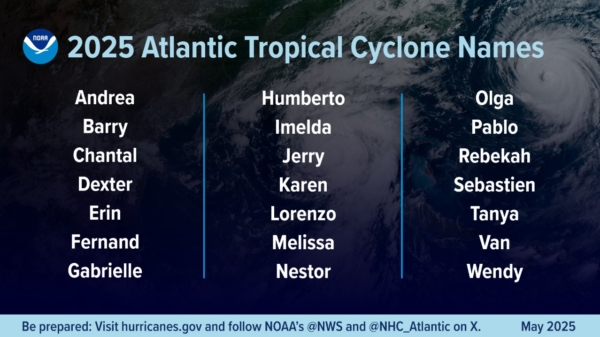
Preparing for Natural Disasters
Access Health Louisiana is ready to help our families be prepared in every situation, including emergency situations such as natural disasters or public health emergencies. In case of an emergency, your safety should be your top priority. Stay calm, stay informed, and follow instructions to help ensure your safety and the safety of those around you.
Each parish within Louisiana has its own Emergency Operations Center which distributes information via text, phone, or email before, during, and after a storm or emergency event. We encourage all families to sign up for these alert messages by navigating to your individual parish’s EOC website.
SIGN UP FOR YOUR INDIVIDUAL PARISH EOC TEXT ALERTS BY CLICKING HERE
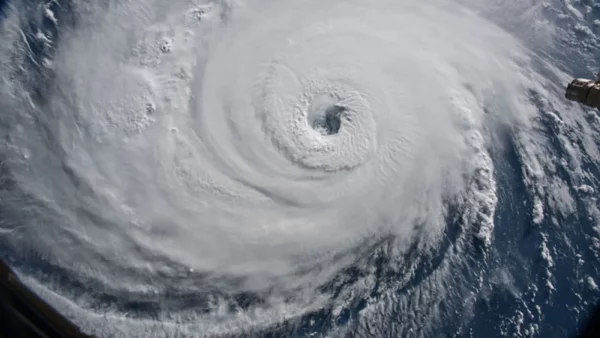 Hurricane Preparedness
Hurricane Preparedness
Knowing where to find information in case of a storm is the first step to hurricane preparedness. Waiting for a storm to make landfall may make it difficult to secure supplies and be prepared when you find yourself in the path of a storm. Stay informed and follow local and national news networks to ensure you are prepared.
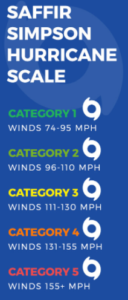
Hurricane Preparedness Resources & Helpful Links
Are your important documents up-to-date? In case of any emergency situation it is important that you have all of your important documents ready for transport in a water-proof container that is easily accessed. Having your important documents together in one place can save you time in care of evacuation and ensures you have everything needed to replace important documents or file claims. This includes some of the items below:
- Cash
- Car Insurance
- Homeowners & Flood Insurance
- Birth Certificate
- Social Security
- Medical Records
- Wills, Trust, Life Insurance, and other financial documents
Check out this link for more information on how to build an Emergency Kit.

Tornado Safety
Tornadoes are violent and unpredictable and can cause extensive damage and loss of life. It’s crucial to know what to do before, during, and after a tornado to keep yourself and your loved ones safe. Read more for some helpful safety tips to follow.
Resources & Helpful Links
Access Health Louisiana is here to help you find resources and information to stay safe in emergent situations.
Before a Tornado:
- Stay informed: Keep an eye on the weather forecast and listen to local news or weather updates for any severe weather warnings or watches.
- Have an emergency plan: Create an emergency plan with your family and make sure everyone knows what to do and where to go in case of a tornado. Designate a safe room or shelter, and practice your plan regularly.
- Prepare a disaster kit: Assemble a disaster kit that includes essential items such as water, non-perishable food, a first aid kit, flashlights, batteries, and a battery-powered radio.
During a Tornado:
- Seek shelter immediately: If you’re indoors, go to the lowest level of the building, and an interior room without windows, such as a closet or bathroom. Stay away from windows, exterior walls, and doors. If you’re in a mobile home, evacuate immediately and seek shelter in a sturdy building or storm shelter.
- Protect yourself: Cover yourself with a mattress or a heavy blanket to protect yourself from flying debris.
- Stay informed: Listen to local news or weather updates for any new information or instructions.
After a Tornado:
- Check for injuries: Check yourself and your family for any injuries and seek medical attention if necessary.
- Check for damage: Check your property for any damage, including gas leaks, electrical hazards, and structural damage. Do not touch downed power lines or broken gas lines and report any issues to the authorities.
- Clean up safely: Wear protective gear such as gloves and boots when cleaning up debris. Be careful when handling broken glass or sharp objects.
Remember to stay calm and follow the instructions of local authorities during a tornado. It’s better to be prepared and take the necessary precautions to keep yourself and your loved ones safe.
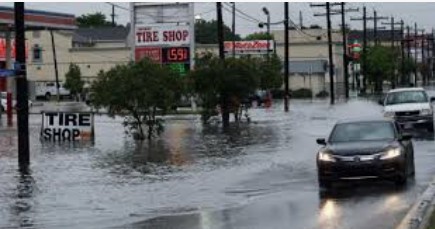
Street Flooding
Be prepared in case of flooding:
From storm surges to hurricanes, flooding can be a destructive and challenging emergency situation to experience. Access Health is committed to helping you make a plan for your health and safety during flooding.
What to do in case of flooding:
Flooding can be a dangerous and stressful situation. Here are some steps you can take in case of flooding:
- Stay informed: Keep track of weather forecasts and flood warnings issued by local authorities. Listen to emergency broadcasts and follow their instructions.
- Evacuate if necessary: If you are instructed to evacuate, do so immediately. Don’t wait until it’s too late. Grab your emergency kit and go to a safe place.
- Move to higher ground: If you can’t evacuate, move to a higher floor or a roof. Don’t try to wade through floodwaters, as they can be dangerous and contaminated.
- Turn off utilities: Turn off electricity, gas, and water at the main switch or valve to prevent electrical shock, gas leaks, and water damage.
- Move valuable items: Move important items to higher ground or take them with you if you evacuate.
- Avoid contact with floodwaters: Floodwaters can contain dangerous debris, chemicals, and bacteria. Avoid contact with floodwaters, and don’t let children play in them.
- Wait for the all-clear: Don’t return home until local authorities give the all-clear. Be cautious when returning, as floodwaters may have caused damage to roads, bridges, and buildings.
Remember that flooding can be unpredictable, and it’s essential to stay vigilant and follow instructions from local authorities.
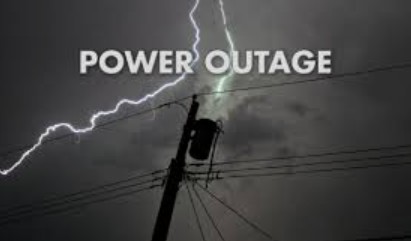
Power Outage
Prepare for Power Loss
Power outages can be scary, but having a plan and understanding what your options is the best way to navigate what can be a dangerous situation. Read more about how to stay safe during power loss.
Generators (How to Safely Operate a Generator)
Generator safety is an important part of preparing for power loss situations.
Take Action When You Lose Power:
- To reduce your risk of carbon monoxide poisoning, use generators, grills, pressure washers, or other items that emit carbon monoxide outdoors only. Generators should always be at least 20 feet away from your home.
- Check your food and throw away anything that may not be safe to eat.
- Check with local authorities to be sure your water is safe to drink and determine if there is a boil water notice for your area.
- In hot weather, hydrate and stay cool. Drink plenty of fluids to prevent heat-related illnesses such as heat stroke or dehydration.
- In cold weather, prepare with dry layers of clothing to help you regulate your temperature and keep in body heat.
- Avoid downed power lines, if you see a downed powerline anywhere in your area stay away. If you are in a vehicle and a power line falls on your car, stay inside the vehicle and contact emergency services.
- Plan with your physician, if you have a medical condition that requires electricity to refrigeration of medication, or medical devices ensure you have a plan for power outages.
Contact Your Utility Providers
In case of a power outage, contact your electrical and water providers to ensure your safety and to stay up-to-date.
Resources & Helpful Links
- Access Health Louisiana: 504-575-3720
- American Red Cross (Greater New Orleans chapter): (504) 620-3150
- Arson Alert Hotline: 844-954-1221
- Disaster Distress Helpline: 1-800-299-HELP (Call or Text)
- FEMA: 800-621-3362
- Louisiana State Police: 911
- Poison Control Center: 800-222-1222
- Salvation Army: 800-SAL-ARMY
- Louisiana Traffic Conditions: 511
- United Way: 211

